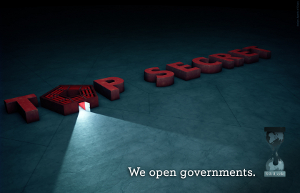By Alfred Tuinman
- 4 minutes read - 656 wordsEdited on March 21, 2023
Fascinating. Absolutely fascinating. There is no other word to describe how the world is scrambling to deal with the WikiLeaks information and in particular with its founder Julian Assange. There is no cohesive response as everybody is shooting from the hip, often totally ignorant about the legal issues at stake.
The latter is even unclear to the legal community due to the novelty and the international character of the case. No surprise therefore that legal human rights heavy weight lawyer Geoffrey Robertson QC is going to defend Mr Assange.Before we jump to conclusions this is indeed a superb management case study in progress. Just consider this for a moment:

Wiki Leaks
- What if the culprit was your own staff?
- What would you do if you, as CEO, were requested to close down Mr Assange’s business relationship with your company?
- Would your action be different if it came from the Attorney General**or a foreign national body.
- *How would you present your decision to the world at large?
- *How would you deal with a sudden popular public outcry against your actions?
There is a tremendous amount of hypocrisy involved here. In a bid to attract attention
Sarah Palin’s reaction on her Facebook is most extreme: “Why was he not pursued with the same urgency we pursue al Qaeda and Taliban leaders?” she writes. I guess she can be forgiven for being somewhat biased as her own mail box was hacked in 2008 and information was displayed on WikiLeaks just at the time of the presidential election campaign.
It was only last January that Hillary Clinton gave her famous speech: “The Internet has already been a source of tremendous progress in China, and it is fabulous. … But countries that restrict free access to information or violate the basic rights of Internet users risk walling themselves off from the progress of the next century.” On November 29 she changed her tune when she stated “Let’s be clear. This disclosure is not just an attack on America – it’s an attack on the international community. Such leaks, she said, “tear at the fabric” of responsible government.”
The whistleblower website continued to battle a seemingly global effort to block
release of further information led by the US Attorney-General, Eric Holden. Forcing third parties like Google, Mastercard, PayPal and the SwissPost etc. to close their WikiLeaks accounts. The charges on some obscure law in Sweden are totally out of proportion. Washington appears to be seeking to prosecute Assange now under the 1917
Espionage Act (unsuccessfully used against the New York Times when it published the Pentagon Papers in the 1970s) and something which may potentiality be unconstitutional.
Having said all of this, I cannot help but think of the assassination of Dutch film
director Theo van Gogh in 1994. Like WikiLeaks, he was using the freedom of speech to justify his actions (speaking out against Muslims). However, freedom comes with responsibility. Obviously the data released by Wikileaks borders this criteria. The question that should be addressed therefore is what, if any, kind of information should be
kept under wraps (e.g. potential high risk targets) and what could be released (e.g. statements on other national leaders).
The more we try to gag Wikileaks to more attention we draw to the leaked documents. It is therefore a lot more useful to direct all the attention to prevent such a huge leak from happening again. I must confess that Australia’s foreign minister, Kevin Rudd, has outsmarted all other politicians. He ignored that he himself was denigrated in some of the US cables and has provided consular assistance to Julian Assange thus ensuring the latter’s legal rights. Australians, like most other nations, will come down on the side of open government and freedom of the press. WikiLeaks is all about breaking down government power to inhibit the free flow of information.
Is your company ready for a leak?
![See the interview on TED with Julian Assange